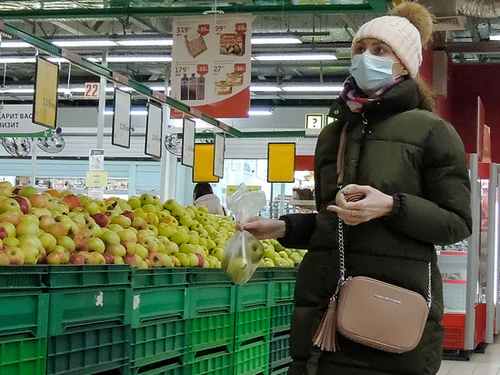Prime Minister Mikhail Mishustin said that prices for socially important products are growing at a frantic pace due to the greed of individual manufacturers and retailers.
They are cashing in on the boom in demand, but the government has the tools to curb their appetites. Experts do not exclude that the authorities will use the fiscal whip as an educational tool.
“And here it is important to say about one more reason why prices are rising. This is the greed of individual manufacturers and retail chains, – said Mishustin. “The government has enough tools to curb the appetites of those who profit from the rush of demand in all areas.”
The Russian government has a very wide range of tools to “curb” business greed, here and there are already proven price freezes and all kinds of export restrictions. However, at the same time, probably, one should not exclude the most powerful educational tool – the fiscal whip, believes Alexander Rozman, senior analyst at Forex Optimum.
In his opinion, too often lately the Russian leadership has hinted or spoke openly about a possible increase in taxes for business.
“President Putin spoke about this possibility in the context of the“ wrong ”dividend policy of large Russian companies. Later, the government started talking about the close attention to the super profits of Russian metallurgists, and here is the third call from Prime Minister Mishustin during a report to the State Duma, the expert says. “I really want to be wrong, because raising taxes on business in conditions of weak economic dynamics will not bring anything good to the Russian economy, but it will help to solve the financial problems of filling the deficit budget”.

The statements of the prime minister about the “greed” of business, only because of which, as it were, the prices rise, should probably be treated as a political statement, and not as a macroeconomic explanation.
If we talk about the macroeconomic explanation, then in fact we are seeing a completely classic example, typical for economies in which prices and demand fluctuate greatly. In such conditions, producers perceive the growth of nominally demand exclusively as an inflationary phenomenon, and therefore respond to it not by expanding production, but by raising prices.
“Therefore, the history of the Russian economy is to blame for the ‘greed’ of business, which has rigidly taught business to certain rules of the game, and the claims of the Russian authorities should be directed to those who formed this story,” Rozman summed up.
Meanwhile, the range of goods whose price dynamics accelerate in the summer months is quite wide. Bread, meat and poultry, fish and seafood, dairy products, butter, clothing and linen, knitwear, footwear, TV and radio goods, household services, sanatorium and health services, all these goods and services will be at risk of increased inflation due to seasonal factors, including an increase in demand and a decrease in supply for a number of food products before the new harvest.